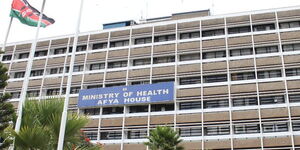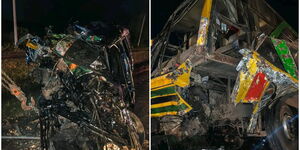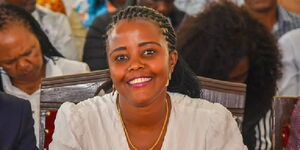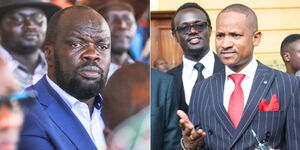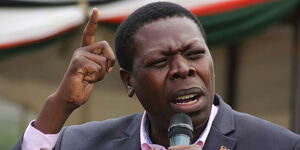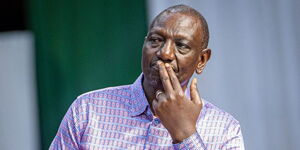President William Ruto's Protest Victims Compensation scheme continues to be met with opposition, with the Kenya Human Rights Commission (KHRC) calling for its disbandment.
On August 8, President Ruto established the Framework for the Compensation of Victims of Protests and Riots, acknowledging the regrettable incidents of violence, injury, and loss of life that occurred during anti-government demonstrations.
“Whereas, since the promulgation of the Constitution in 2010, the expanded democratic space has afforded Kenyans from all walks of life the liberty to express themselves through demonstrations and picketing, some of which regrettably have turned violent, resulting in bodily harm and loss of life,” Ruto noted then.
However, after internal investigations and considerations, KHRC revealed its concerns that the proposed framework risks becoming another exercise in whitewashing and cover-up rather than a vehicle for truth, justice, and accountability.
According to KHRC, President Ruto's declaration of protesters as 'terrorists' and 'coup plotters', and his issuing of shoot-to-maim orders, has already compromised the framework he is initiating and controlling.
“KHRC analysis finds the framework fatally compromised, with perpetrators in charge of oversight. It demands that it be disbanded and that the Kenya National Commission on Human Rights (KNCHR) and the Independent Policing Oversight Authority (IPOA) take up the role,’’ the statement read in part.
Demands to Ruto by KHRC
Apart from its disbandment, KHRC also issued 10 demands to the president, directing that they must act on them as a sign of its political goodwill and seriousness.
Among the demands are the immediate return of Martin Mavenjina, a KHRC Senior Program Advisor who was allegedly unlawfully renditioned to Uganda, an apology and expression of remorse from Ruto, and the release of the more than 90 youth political prisoners currently detained in various police cells nationwide.
KHRC also called for an end to tech-based repression, including surveillance and media censorship targeting activists and journalists, full payment of court-ordered reparations to victims, withdrawal of state appeals in cases where it has been found culpable, and the fast-tracking of ongoing human rights violation cases.
Other demands are full payment of court-ordered reparations to victims, withdrawal of state appeals in cases where it has been found culpable, and the fast-tracking of ongoing human rights violation cases.
KHRC also called for the decriminalisation of peaceful public gatherings, which, according to them, the framework controversially labels as “riots.”
The commission also argued that the framework violates the Victims Protection Act, 2014, and its contradiction of international human rights standards. It argues that the initiative fails to guarantee independent investigations, effective reparations, and institutional reforms to prevent future abuses.
They have invited the United Nations human rights experts to monitor the process, emphasising that any justice mechanism must be rooted in line with the constitution and the rule of law.
President Ruto had appointed Makua Mutua, his Senior Advisor on Constitutional Affairs and Human Rights, as the Principal Co-ordinator of the framework, giving them 120 days to oversee the frameworks implementation and oversight.

